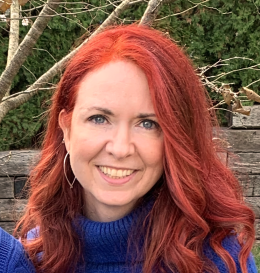
Rachel E.
Durham
School of Education
Courses I Teach
- Dissertation Seminar I
- Dissertation Seminar II--Methodology
Education
- Ph.D. in Sociology and Demography, Pennsylvania State University
- M.A. in Sociology, Arizona State University
- B.A. in Sociology, University of Mississippi
Bio
Dr. Rachel E. Durham is an Associate Professor in the School of Education at Notre Dame of Maryland University and Senior Research Fellow with the Baltimore Education Research Consortium (BERC), a research-practice partnership with Baltimore City Public Schools. Her areas of expertise include the transition to postsecondary, Community Schools, immigration and education, and research-practice partnerships. She has published research many peer-reviewed outlets, is past-Secretary and Program Chair for Division H of the American Educational Research Association. Currently, she is co-PI on an IES-funded project investigating career development opportunities in Baltimore City Schools and their impact on postsecondary pathways. She has teaching interests in statistics, quantitative, mixed methods, and education equity and policy.
Selected Publications and Presentations
- Durham, R.E., Falk, M., Daniels A., Reigel, A., Sparks, A., Williams, M., & Yanisko, E. (2024). Encouraging STEM careers among minoritized high school students: The interplay between socio-environmental factors and other social cognitive career constructs. Education Sciences, 14(7), 789-805. doi.org/10.3390/educsci14070789
- Plasman, J., Stein, M.L., Durham, R.E., & Smith-Onyewu, Z. (2024). CTE mechanisms: The effects of CTE Center admissions offers in Baltimore. Education Evaluation and Policy Analysis. doi.org/10.3102/01623737241239299
- Baruch, B., & Durham, R. E. (2024). The impact of remote learning on the English acquisition of Delaware K-12 multilingual learners. Paper presented at the Annual Meetings of the American Educational Research Association, Philadelphia, PA.
- Dupuis, J., & Durham, R.E. (2023). K-12 science achievement: Time-varying influence of Green School initiatives. Environmental Education Research, 30(2), 306-319. doi.org/10.1080/13504622.2023.2253502
- Durham, R.E., Smith-Onyewu, Z., Cronister, C., Dewey, N.A., & Stein, M.L. (2023). College access in Baltimore: A decade of college-going among City Schools Graduates. Baltimore, MD: Baltimore Education Research Consortium. https://baltimore-berc.org/wp-content/uploads/2023/05/2023_BERC_CollegeAccessReport.pdf
- Klinger, A., & Durham, R.E. (2022). Language minority students identified for special education: Proportional representation across elementary years. Paper presented at the Annual Meetings of the American Educational Research Association, San Diego, CA.
- Savick, S., Durham, R.E., Silver, P. Letizia, A., & Watson, M.L. (2022). Professional development and community school models meet to make a difference. In J.A. Ferrara, J.L. Nath, & R. Beebe (Eds.), Professional development school (PDS) and community schools: The nexus of practice. Information Age Publishing.
- Arnold, K. T., Pollack Porter, K. M., Frattaroli, S., Durham, R.E., Clary, L. K., & Mendelson, T. (2021). Multilevel barriers and facilitators to sustainability of a universal trauma-informed school-based mental health intervention following an efficacy trial: A qualitative study. School Mental Health, 13, 174–185. doi.org/10.1007/s12310-020-09402-w
- Durham, R.E. (2020). Predictors of career and college persistence among Baltimore City Schools graduates: Implications for differences between career and college destinations. Baltimore, MD: Maryland Longitudinal Data System Center. https://mldscenter.maryland.gov/egov/Publications/ExternalResearchReports/MLDS_Report_PostsecondaryPathwaysBaltimoreCitySchoolsGrads_June2020.pdf
- Connolly, F., Durant, T., & Durham, R. E. (2020). Indicators to assist in addressing equity through policy adoption. Teachers College Record, 122(14), 1-32. doi.org/10.1177/016146812012201411
- Durham, R. E., Shiller, J., Connolly, F. (2019). Student attendance: A persistent challenge and leading indicator for Baltimore’s Community School Strategy. Journal of Education for Students Placed At Risk, 24(3), 218-243. doi.org/10.1080/10824669.2019.1615922
- Durham, R.E., Connolly, F. (2018). Launching into Adulthood: 2009 Graduates of Baltimore City Public Schools. Research Brief Series. Baltimore, MD: Baltimore Education Research Consortium. https://baltimore-berc.org/launching-into-adulthood/
- Durham, R. E., Bell-Ellwanger, J., Connolly, F., Howard Robinson, K., Olson, L., Rone, T. (2015). University-district partnership research to understand college readiness among Baltimore City students. Journal of Education for Students Placed At Risk, 20(1-2), 120-140. doi.org/10.1080/10824669.2014.987278
- Barakat, B. F., Durham, R. E. (2014). Future education trends. In Wolfgang Lutz, William Butz, Samir KC (Eds). World Population and Human Capital in the 21st Century (pp. pp. 397-433). Oxford University Press.
- Barakat, B. F., Durham, R. E. (2013). Dropout mayors and graduate farmers: Educational fertility differentials by occupational status and industry in six European countries. Demographic Research, 28, 1213-1262. doi.org/10.4054/demres.2013.28.42
- Bodovski, K., Durham, R. E. (2010). Parental practices and achievement of Mexican and Chinese immigrant children in the U.S.: Assimilation patterns? Research in Comparative and International Education, 5(2), 156-175. doi.org/10.2304/rcie.2010.5.2.156
- Durham, R. E., Farkas, G., Scheffner-Hammer, C., Tomblin, B., Catts, H. (2007). Kindergarten oral language skill: A key variable in the intergenerational transmission of socioeconomic status. Research in Social Stratification and Mobility, 25, 294-305. doi.org/10.1016/j.rssm.2007.03.001

